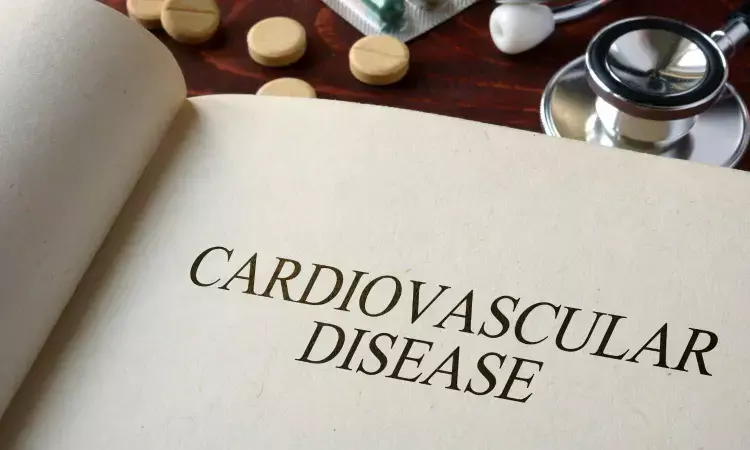- Home
- Medical news & Guidelines
- Anesthesiology
- Cardiology and CTVS
- Critical Care
- Dentistry
- Dermatology
- Diabetes and Endocrinology
- ENT
- Gastroenterology
- Medicine
- Nephrology
- Neurology
- Obstretics-Gynaecology
- Oncology
- Ophthalmology
- Orthopaedics
- Pediatrics-Neonatology
- Psychiatry
- Pulmonology
- Radiology
- Surgery
- Urology
- Laboratory Medicine
- Diet
- Nursing
- Paramedical
- Physiotherapy
- Health news
- Fact Check
- Bone Health Fact Check
- Brain Health Fact Check
- Cancer Related Fact Check
- Child Care Fact Check
- Dental and oral health fact check
- Diabetes and metabolic health fact check
- Diet and Nutrition Fact Check
- Eye and ENT Care Fact Check
- Fitness fact check
- Gut health fact check
- Heart health fact check
- Kidney health fact check
- Medical education fact check
- Men's health fact check
- Respiratory fact check
- Skin and hair care fact check
- Vaccine and Immunization fact check
- Women's health fact check
- AYUSH
- State News
- Andaman and Nicobar Islands
- Andhra Pradesh
- Arunachal Pradesh
- Assam
- Bihar
- Chandigarh
- Chattisgarh
- Dadra and Nagar Haveli
- Daman and Diu
- Delhi
- Goa
- Gujarat
- Haryana
- Himachal Pradesh
- Jammu & Kashmir
- Jharkhand
- Karnataka
- Kerala
- Ladakh
- Lakshadweep
- Madhya Pradesh
- Maharashtra
- Manipur
- Meghalaya
- Mizoram
- Nagaland
- Odisha
- Puducherry
- Punjab
- Rajasthan
- Sikkim
- Tamil Nadu
- Telangana
- Tripura
- Uttar Pradesh
- Uttrakhand
- West Bengal
- Medical Education
- Industry
Personalized patient visualization of CAC imaging with statin therapy tied to reduced CV risk

In a significant leap forward for cardiovascular health, a recent study has illuminated the positive impact of visualizing coronary artery calcium (CAC) images on long-term risk control. The findings, stemming from a comprehensive investigation, spotlight the potential of personalized patient engagement through repeated exposure to CAC images, offering a novel approach to cardiovascular risk management.
The study results were published in the European Journal of Preventive Cardiology.
Understanding and managing cardiovascular (CV) risk play pivotal roles in guiding individuals toward choices that foster risk reduction. This study, designed to explore the efficacy of sustained visualization of CAC images, unfolds a promising avenue for primary prevention of cardiac risk-related issues.
The study enlisted asymptomatic individuals between the ages of 40 and 70 who were new to statin medications, possessed a family history of premature coronary artery disease, and exhibited CAC scores ranging from 1 to 400. Participants were randomly assigned to either a nurse-led CV risk reduction program or standard care involving bi-annual reviews. Notably, the intervention group, comprising 220 out of 449 participants, not only visualized their CAC images but also commenced statin therapy, with repeated exposure to the images in the initial 3 months.
The primary outcome measured was the change in the Framingham Risk Score (FRS) over a 36-month period.
Findings:
- The results showcased a noteworthy reduction in FRS and low-density-lipoprotein-cholesterol among the intervention group compared to the control group, indicating a positive impact on long-term cardiovascular risk.
- Within the intervention group, individuals who sustained recall of their CAC images at the 24-month mark exhibited additional health benefits. Sustained recall was linked to lower systolic blood pressure and reduced waist circumference at the 36-month milestone, emphasizing the potential influence of repeated visual exposure on shaping healthier cardiovascular outcomes.
The study's groundbreaking findings suggest that a nurse-led program, combining personalized patient visualization of CAC imaging with statin therapy, proves to be a game-changer in cardiovascular risk management. Furthermore, the sustained recall of CAC images emerges as a key factor in promoting long-term risk reduction, indicating that active patient engagement and visual reinforcement contribute significantly to heart health.
Further reading: Kristyn Whitmore, on behalf of the CAUGHT-CAD investigators, Influence of Repeated Plaque Visualization on Cardiovascular Risk Reduction after 3 years; a randomized controlled trial, European Journal of Preventive Cardiology, 2024;, zwae026, https://doi.org/10.1093/eurjpc/zwae026.
BDS, MDS
Dr.Niharika Harsha B (BDS,MDS) completed her BDS from Govt Dental College, Hyderabad and MDS from Dr.NTR University of health sciences(Now Kaloji Rao University). She has 4 years of private dental practice and worked for 2 years as Consultant Oral Radiologist at a Dental Imaging Centre in Hyderabad. She worked as Research Assistant and scientific writer in the development of Oral Anti cancer screening device with her seniors. She has a deep intriguing wish in writing highly engaging, captivating and informative medical content for a wider audience. She can be contacted at editorial@medicaldialogues.in.
Dr Kamal Kant Kohli-MBBS, DTCD- a chest specialist with more than 30 years of practice and a flair for writing clinical articles, Dr Kamal Kant Kohli joined Medical Dialogues as a Chief Editor of Medical News. Besides writing articles, as an editor, he proofreads and verifies all the medical content published on Medical Dialogues including those coming from journals, studies,medical conferences,guidelines etc. Email: drkohli@medicaldialogues.in. Contact no. 011-43720751




